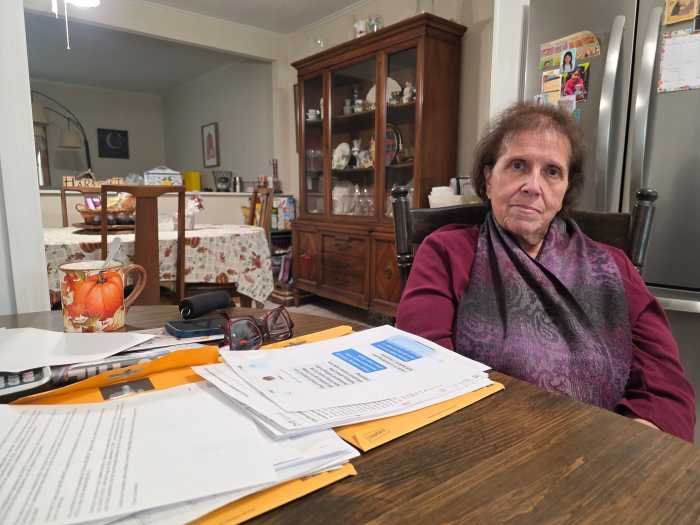BY ARTHUR S. LEONARD | The Supreme Court of Arkansas –– a state that currently bars adoption by cohabitating gay and lesbian couples –– has affirmed a trial court’s ruling that a lesbian mother’s former partner is entitled to visitation with a child whose conception she helped plan and for whom she was a primary parent during infancy.
Relying on the doctrine of in loco parentis, the court, in a 5-2 ruling issued February 17, concluded that the record supported Perry County Circuit Court Judge Vann Smith’s finding that a visitation order would be in the best interest of the child, despite the biological mother’s objections.
In a state hostile to gay adoption, visitation standing of biological parent's ex affirmed
Alicia Bethany and Emily Jones, who lived together as partners in Arkansas from 2000 to 2008, bought a house together in 2003 and the following year arranged for a friend of Jones’ to donate sperm so they could have a child. Because of health considerations, Bethany carried the child, who was born in 2005.
Bethany and Jones both testified they intended to raise their daughter together, and Bethany conceded that at the girl’s birth she considered Jones as her other mother. Bethany returned to work after the child’s birth, and Jones stayed home as her primary caregiver.
Though Bethany had little contact with her family of birth, Jones was close with her parents, who took on grandparenting roles with the infant girl, even taking care of her on occasion so Jones could perform temporary jobs.
The two women broke up in 2008, but agreed that Jones would continue to co-parent the child. Bethany later began a relationship with another woman (who was raising her own child), and, according to Justice Donald L. Corbin’s opinion for the Arkansas high court, cut off Jones’ contact with their daughter after an incident in which Jones kept the child beyond the 24-hour period they had agreed upon.
Jones responded by filing suit to be appointed the young girl’s legal guardian, later modifying her claim to a petition for a visitation order. Bethany opposed that, arguing that Jones was neither a biological nor adoptive parent of the child. During the trial presided over by Circuit Judge Smith, the two women testified adversely about each other’s health and stability.
Smith concluded that Arkansas precedents recognizing the concept of in loco parentis qualified Jones to seek visitation, and that the trial record established that it was in the child’s best interest to continue having contact with her.
The State Supreme Court agreed. A biological parent’s rights are grounded in the Due Process Clause of the federal Constitution’s 14th Amendment, the court noted, a principle explicated in Troxel v. Granville, a 2000 case in which the US Supreme Court rebuffed efforts by grandparents to enjoy visitation rights with their late son’s two daughters that were more expansive than the girls’ mother would allow.
The Arkansas court, however, found the facts of the Bethany-Jones dispute distinguishable from Troxel. Jones, the majority concluded, was more analogous to a step-parent than a grandparent, and Arkansas precedent supports visitation for step-parents under the in loco parentis doctrine.
Corbin, noting that Bethany “seems to argue that because Arkansas does not recognize same-sex marriage or grant domestic-partnership rights, Jones has no legal standing to assert that she stood in loco parentis,” wrote that the biological mother incorrectly focused on her relationship with her ex-partner rather than on Jones’ relationship with their daughter.
Following a tradition under which appellate courts defer to a trial judge's fact-finding in child custody and visitation cases, the Arkansas Supreme Court accepted Smith’s conclusions about the child’s best interest.
Justice Karen R. Baker, recently elected to the court in a campaign that –– in a characterization by the Arkansas Times –– sought support from “conservative religious groups,” accused the majority of making new law in this case and failing to protect Bethany’s constitutional right to decide with whom her daughter associates.
Justice Courtney Hudson Henry also dissented, referring to her opinion in a recent decision “in favor of a fit, natural parent to make decisions regarding the upbringing of his or her own children.”
Given the 2000 Troxel precedent, it is possible that Bethany will seek review in the United States Supreme Court.
Arkansas’ ban on cohabitating unmarried couples, same-sex and different-sex, adopting –– approved by voters in 2008 –– was ruled unconstitutional in April 2010 by a Pulaski County Circuit judge, who found that the prohibition discriminates against same-sex couples because, unlike different-sex cohabitating couples, they cannot marry. The measure remains in effect pending review by the State Supreme Court.
The issue raised by Bethany v. Jones, of course, is a wholly separate matter from the legal question at stake in the adoption ban, but Jones’ victory here demonstrates progress in even the most inhospitable of political climates.


































